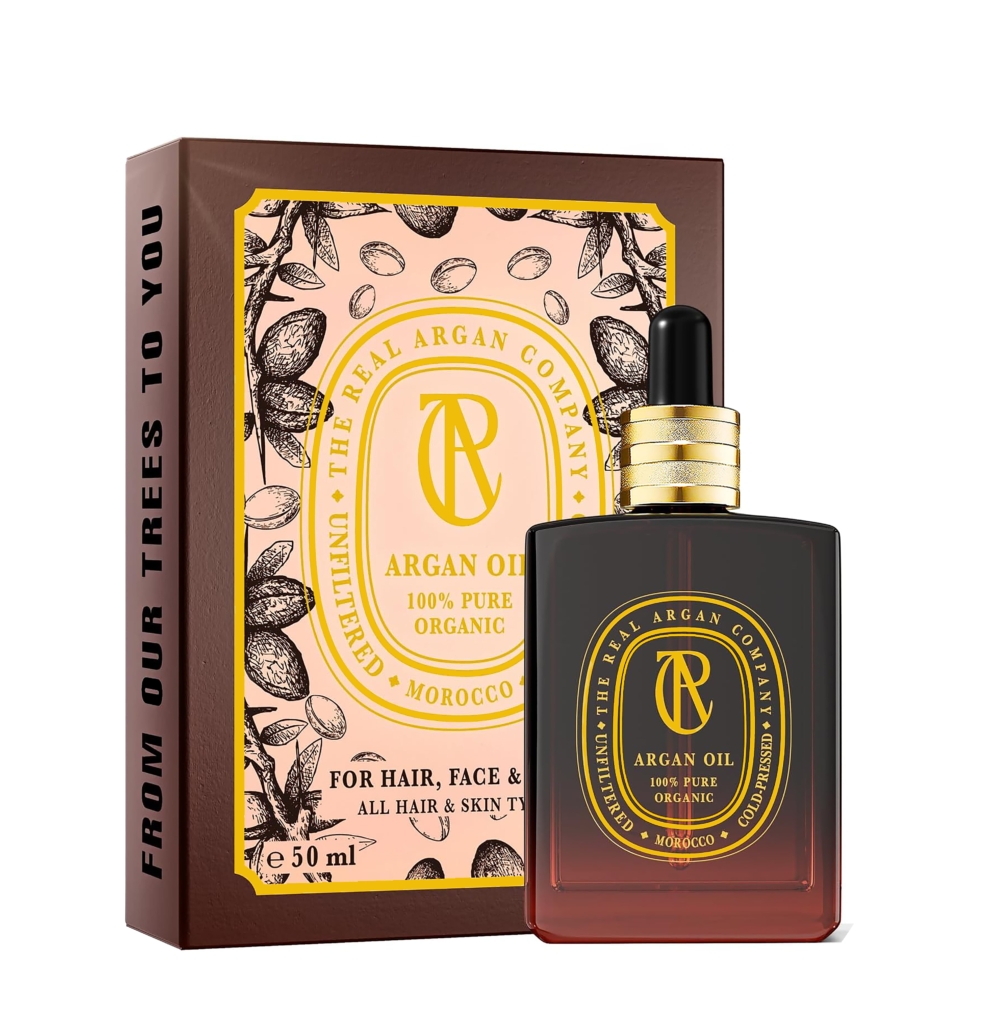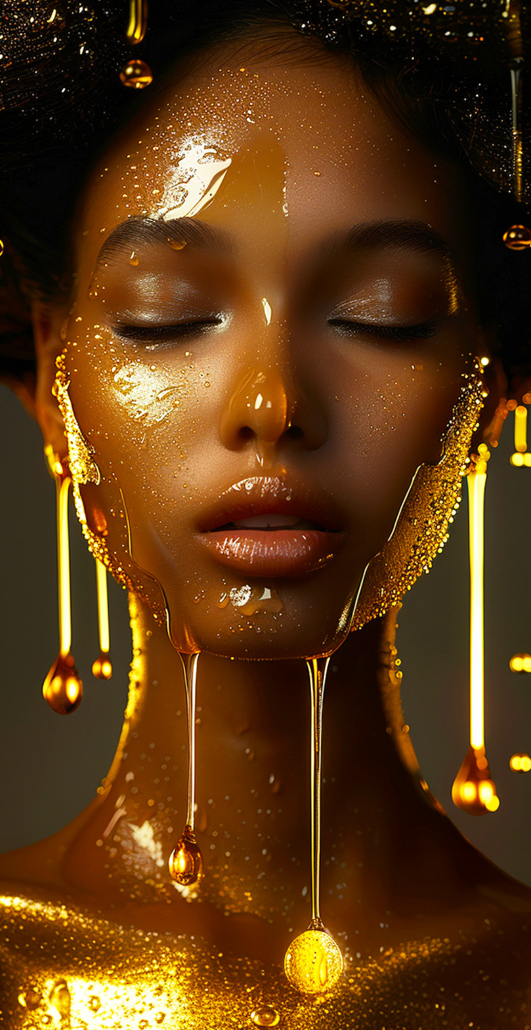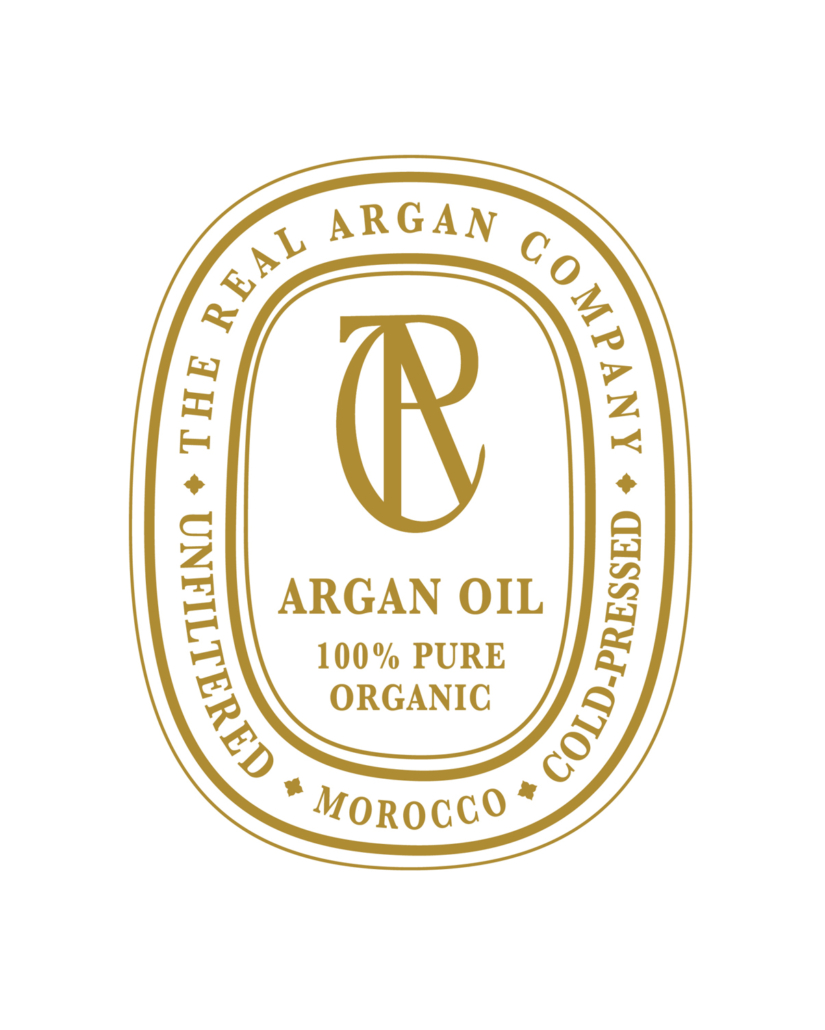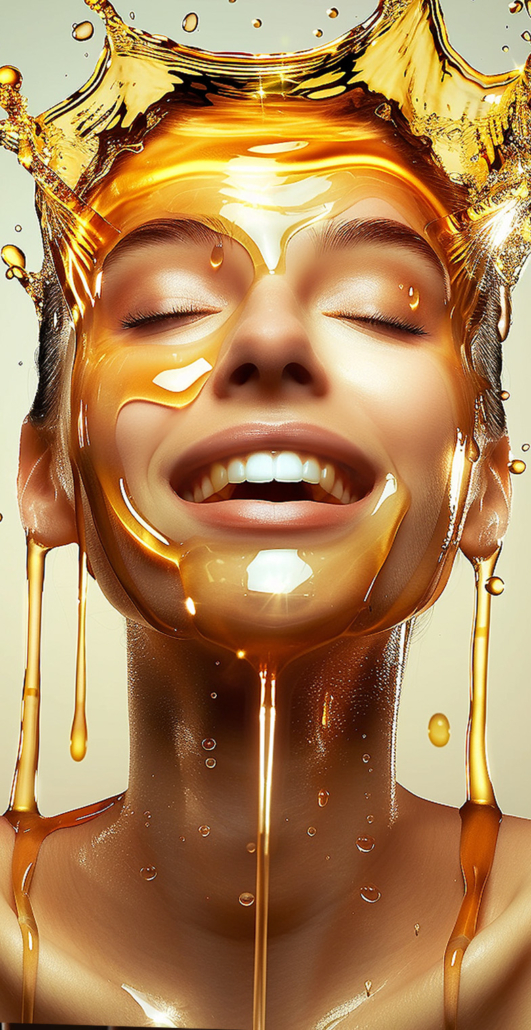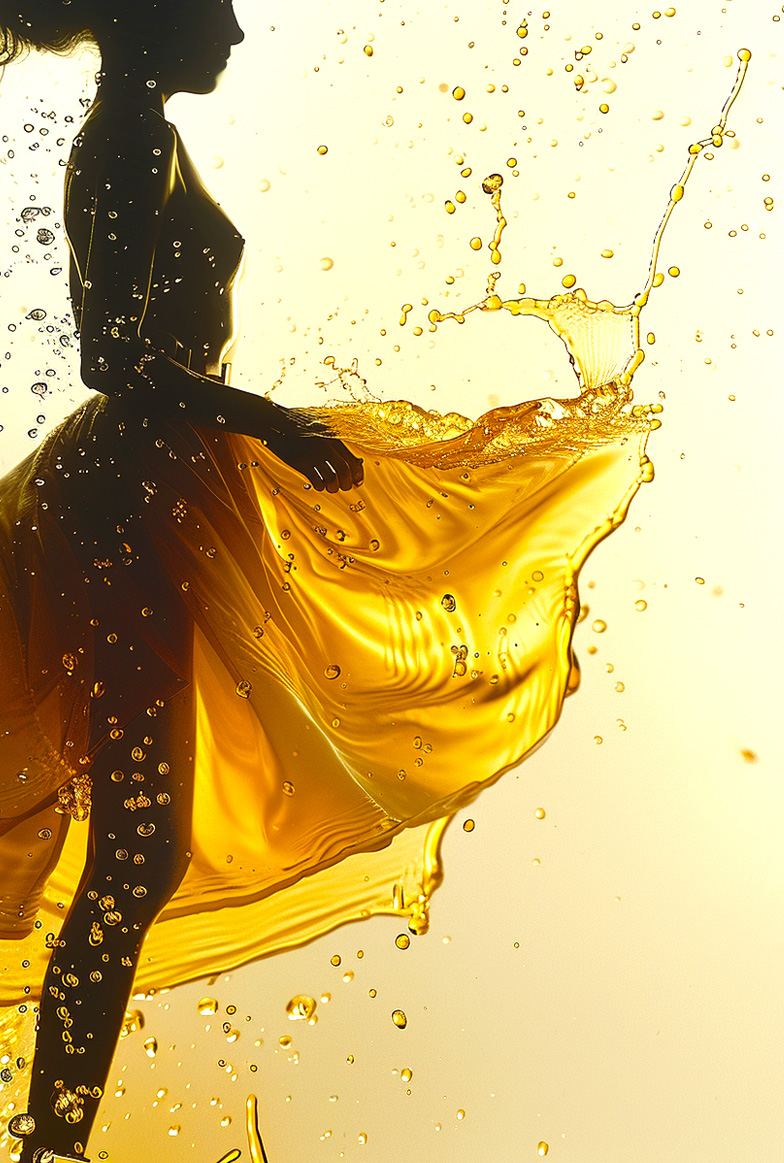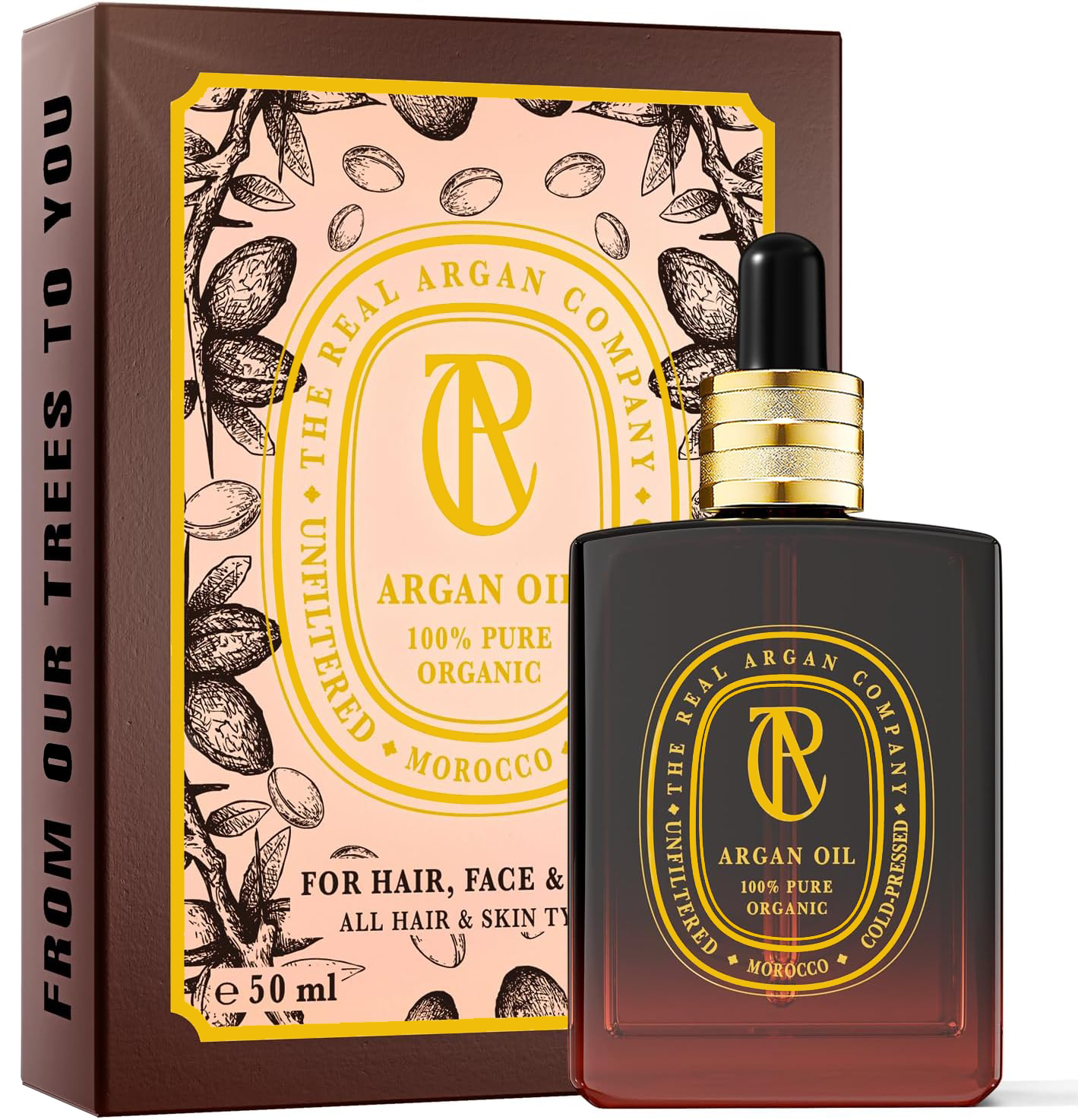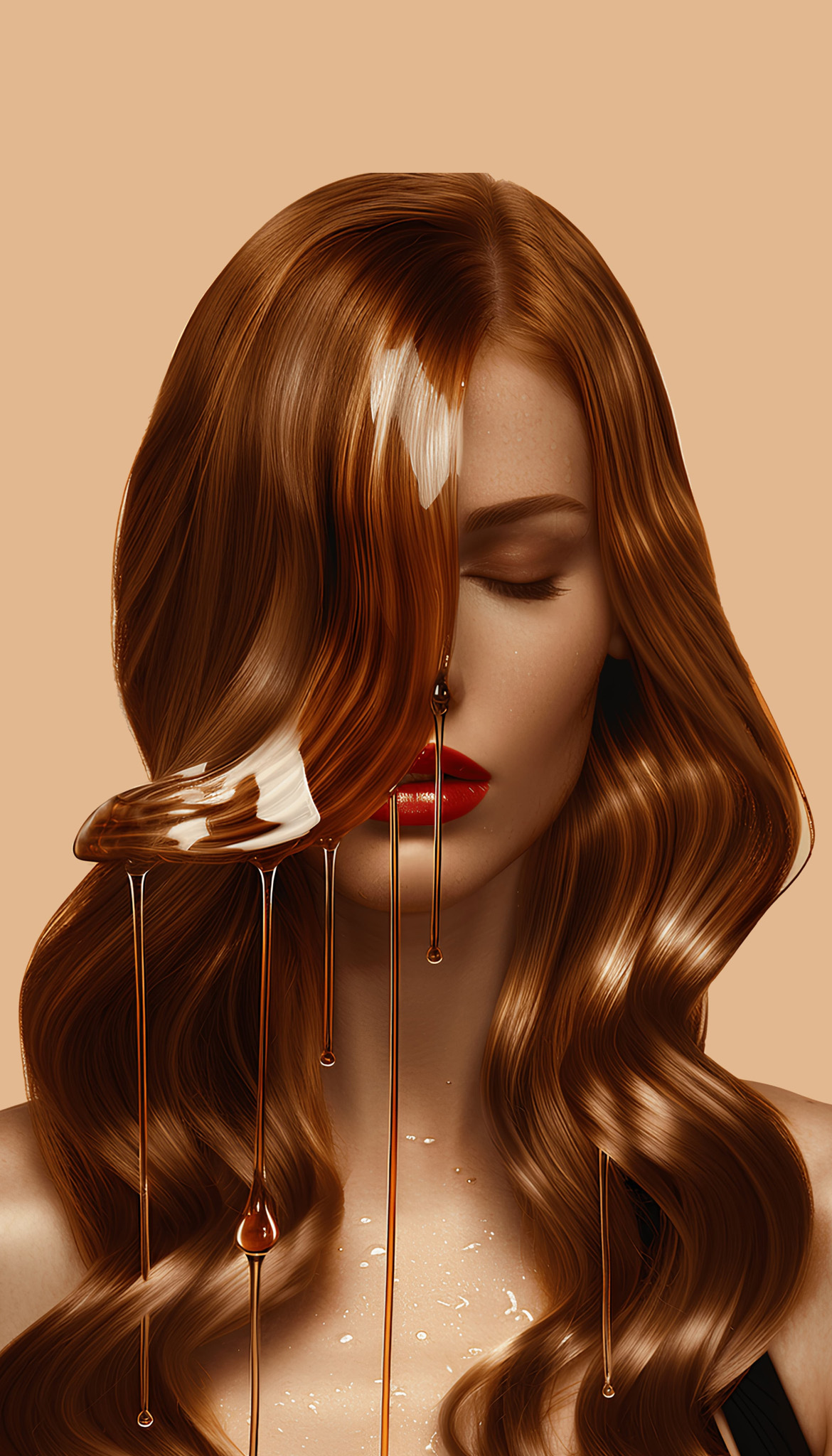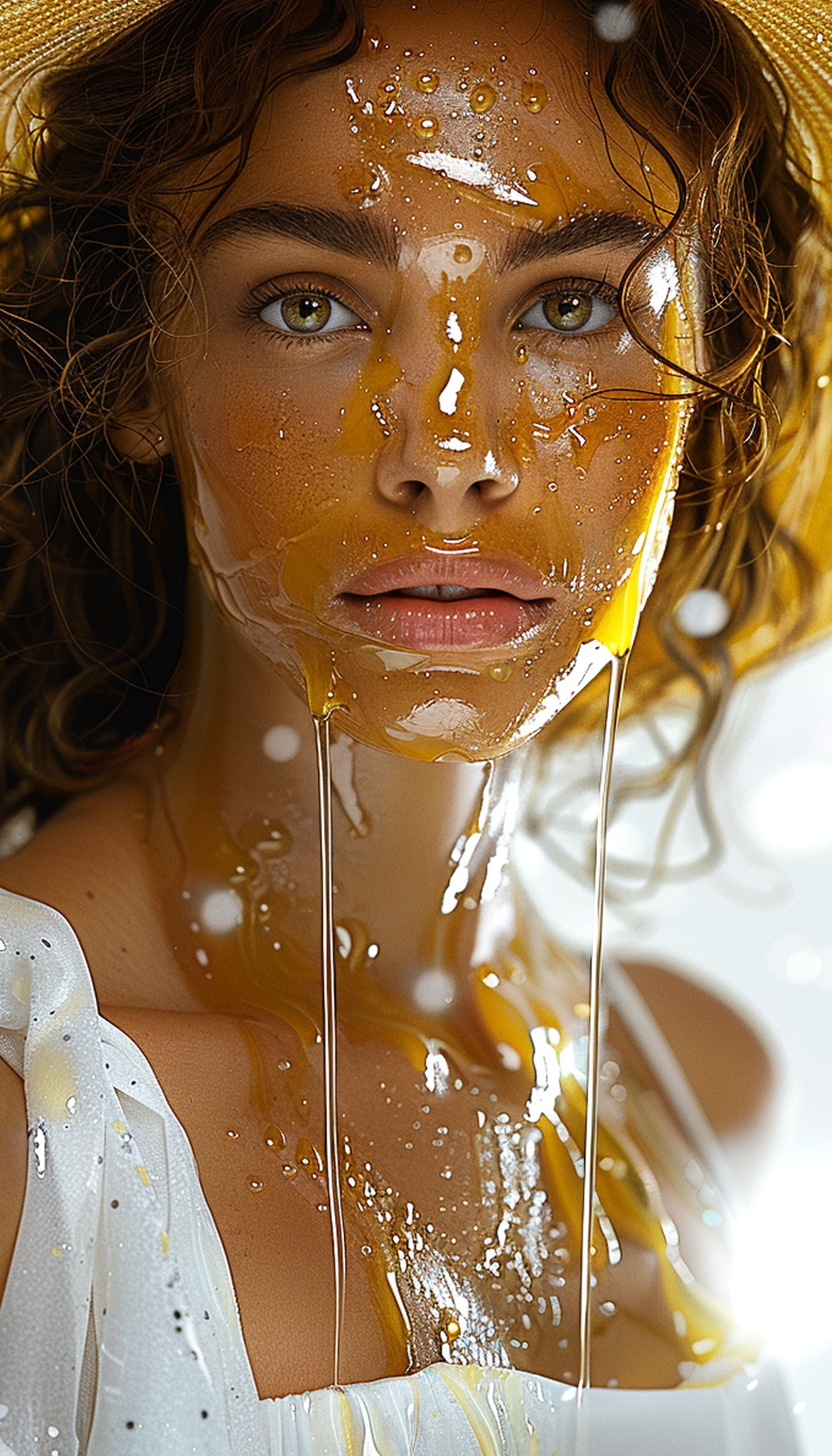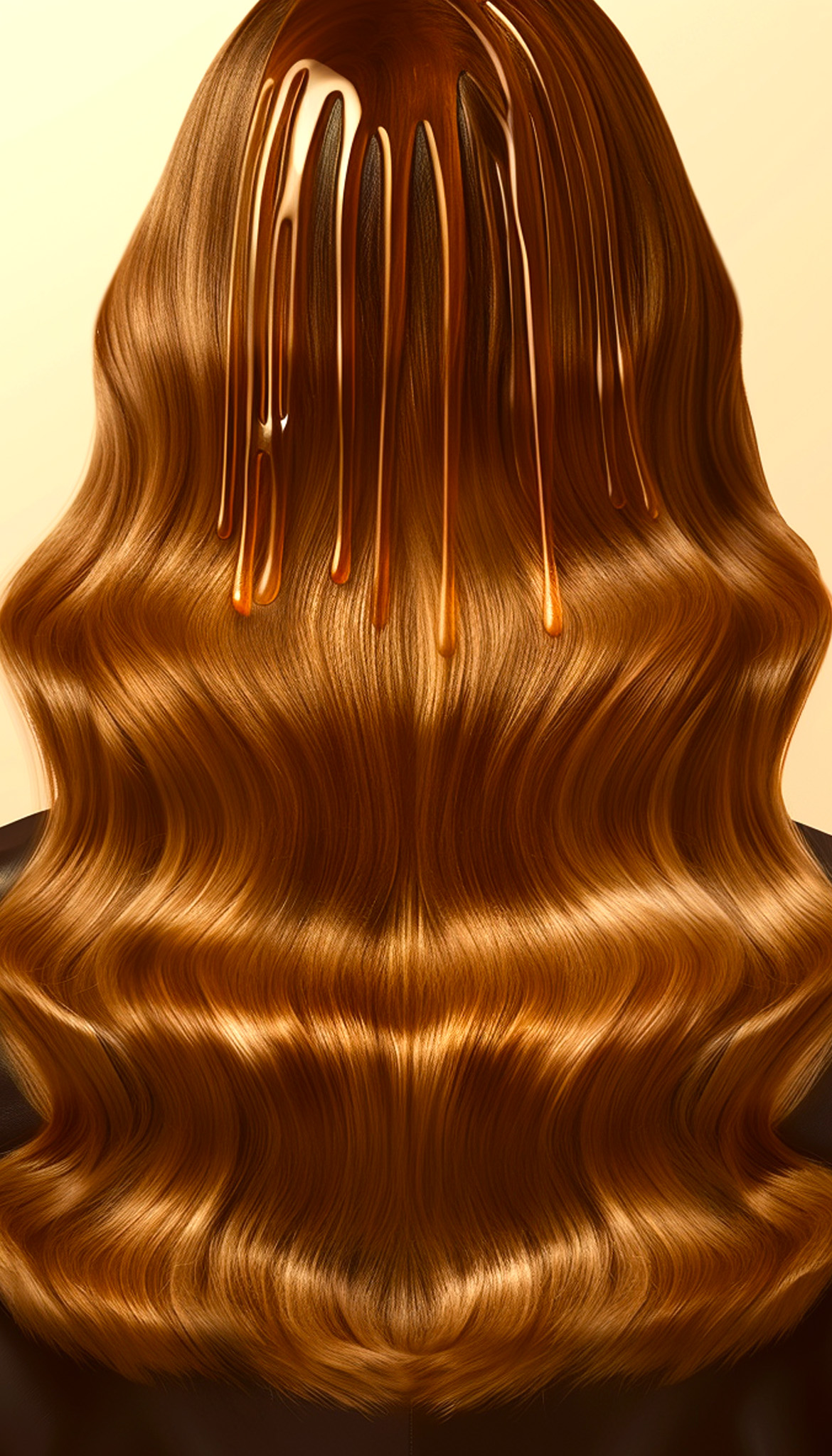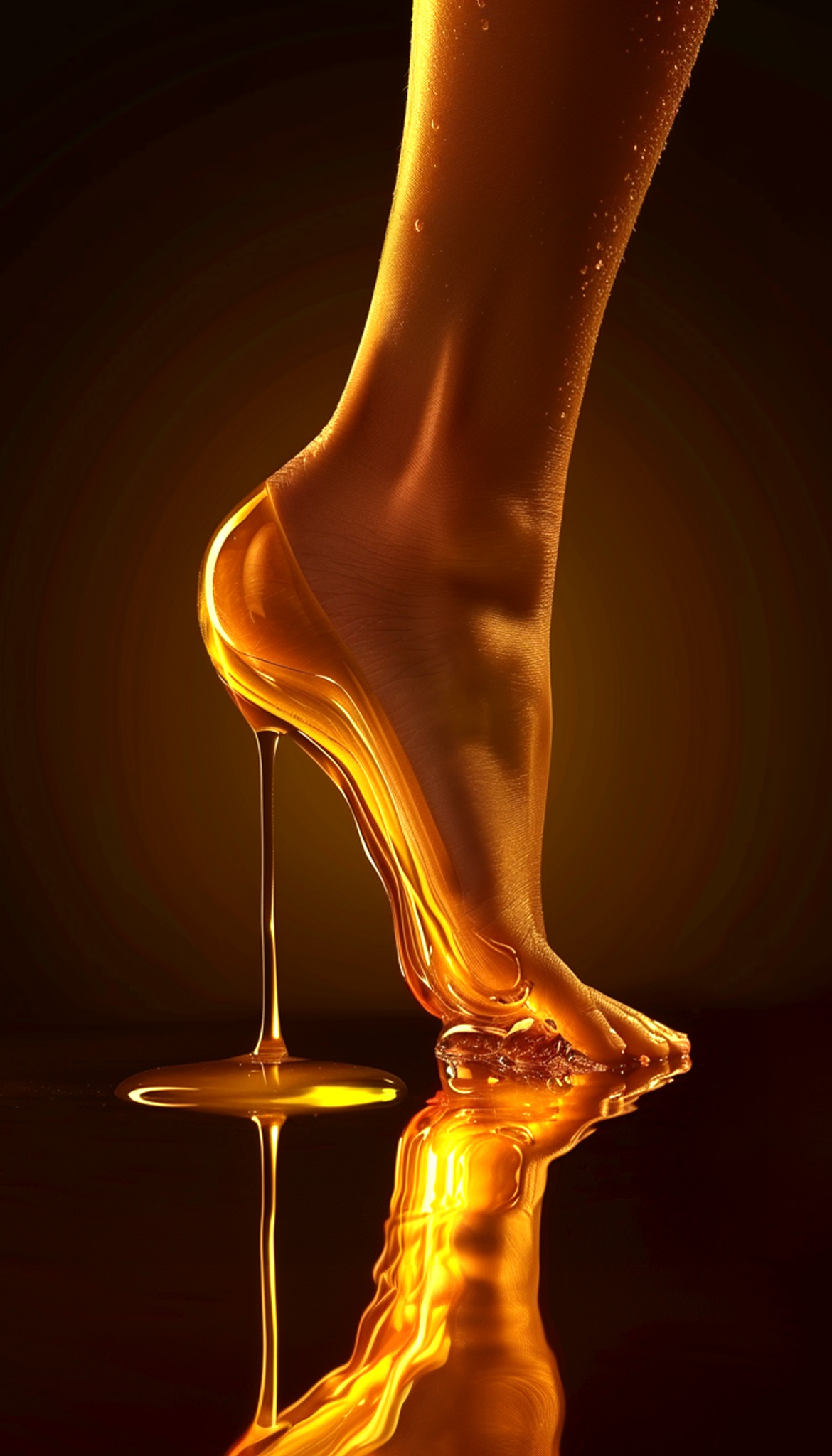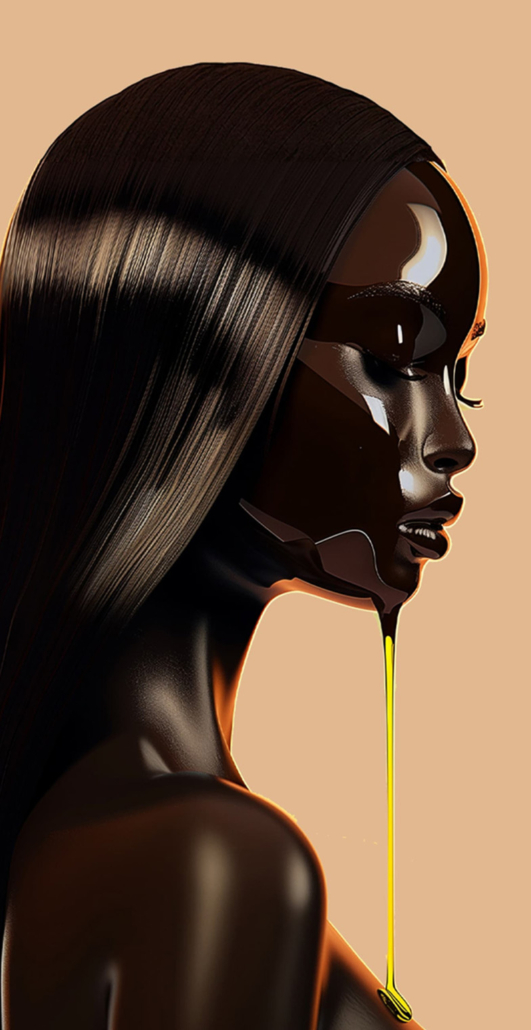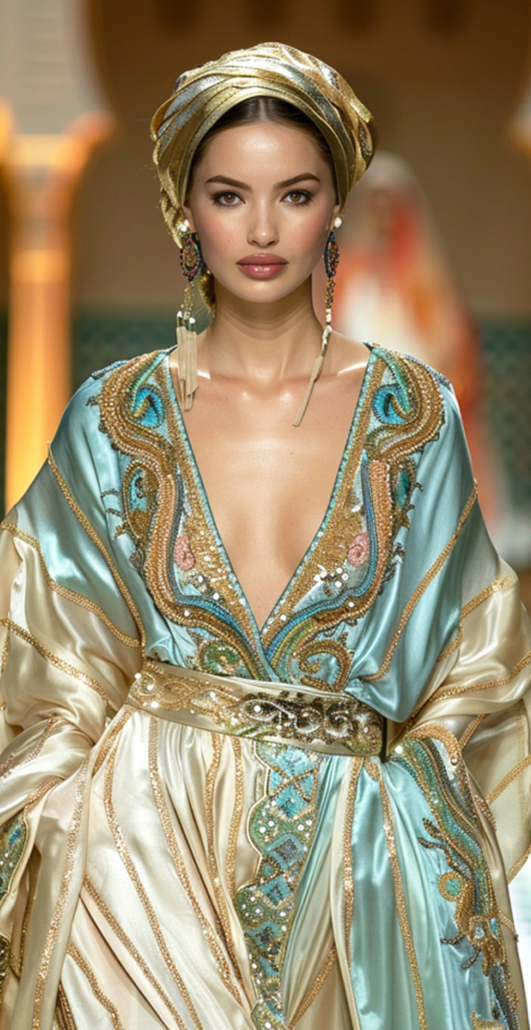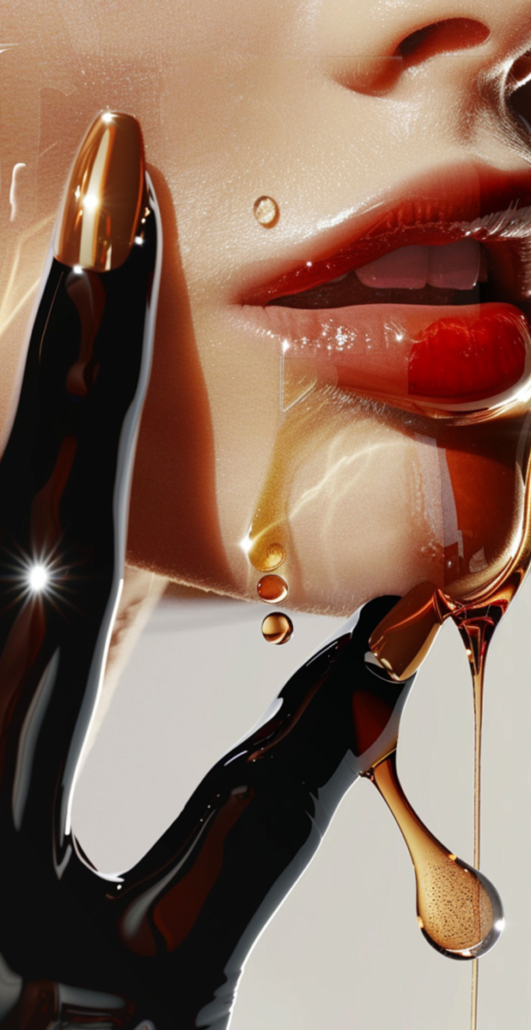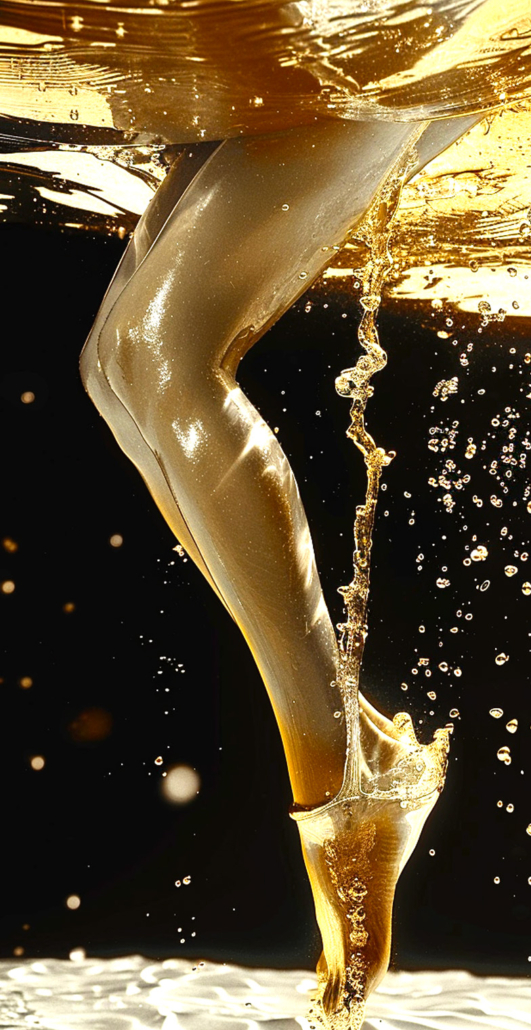“THE FINEST ARGAN OIL IN THE WORLD”
Experience the Real Argan Difference
TOUCH IT, SENSE IT, FEEL IT, “Love it”
From Our Trees To You
“Argan As It Should Be”
PURE & POTENT
“NEVER BUY FAKE ARGAN AGAIN”
Our name “The Real Argan Company” says it all – authentic Argan oil at its finest.
Sourced directly from our ancestral land in the valleys near Agadir the only place in the world where Argan grows. Our Argan oil is literally “from our trees to you” harvested from trees nurtured by our family for generations.
Experience our Argan oil in its most precious and potent form. Organic unfiltered and untouched, preserving its full potency as nature intended.
Touch its velvety richness as it effortlessly glides over your skin and hair.
Sense the delicate, nutty fragrance and the unmistakable aroma of pure Argan.
Feel the deep nourishment as it absorbs, enriching your skin and hair with natural nutrients such as vitamin E, squalene, fatty acids, and antioxidants. Benefit from its unique blend of sterols, polyphenols, and the rare tocotrienols that work together to make Argan oil a natural powerhouse.
Love the luxurious, sensual experience provided by our 100% organic Argan oil.
TREASURES OF ARGAN “Uncover The Magic”
“UNVEIL THE MANY BENEFITS OF REAL ARGAN OIL”
Scalp, Hair & Anti Frizz: Restore hydrating to brittle hair, smooths frizz and flyaways. Helps control dandruff and scalp inflammation for healthier hair.
Hair Growth Promoter: Nourishes the scalp and fosters a healthy environment for hair growth.
Anti-Aging: Helps reduce the visibility of wrinkles by restoring elasticity and firmness to the skin.
Radiant Skin Toner: Enhance your toner by mixing in a few drops of our Argan oil to maximise hydration.
Acne Remedy: Thanks to its non-comedogenic properties, Argan Oil helps soothe and reduce acne without clogging pores.
Gentle Exfoliator: Combine with fine sugar for a nourishing scrub that leaves skin refreshed and revitalised.
Stretch Mark Treatment: text commonly used in the graphic, print, and publishing industries for previewing layouts and visual mockups.
Lip Treatment: Keep lips soft and hydrated; apply a light layer to heal and prevent chapped lips.
Cuticle and Nail Health: Strengthen nails and moisturise cuticles with a dab of Argan oil, ensuring vibrant nail health.
Intensive Foot Treatment: Massage into dry, cracked feet before bed, cover with socks, and wake up to softer feet.
Post-Shave Healer: Ideal for soothing razor burns and bumps, ensuring smooth, soft skin after shaving. For Women & Men.
SEE MORE
MASTERS OF ARGAN “Share Our Knowledge”
“ALL YOU NEED TO KNOW ABOUT ARGAN OIL”
What is Argan Oil?
Argan oil, derived from the kernels of the fruit from the Argan tree (Argania Spinosa), is a rare oil native to a small geographical area in the south west of Morocco.
The oil’s uniqueness stems from its rich biochemical composition, which is a blend of fatty acids, antioxidants, and biologically active substances. It contains approximately 43-49% oleic acid, 29-36% linoleic acid, up to 20% palmitic acid, and 4-7% stearic acid, making it highly nourishing and moisturising.
Additionally, Argan oil is rich in polyphenols, tocopherols (vitamin E), squalene, carotenes and sterols (schottenol and spinasterol) and phytosterols which collectively contribute to its nourishing, moisturising, anti-inflammatory, antioxidant, and anti-sebum effects.
THIS IS WHY ARGAN IS UNIQUE AND WORKS
What’s the science behind argan?
The science behind Argan oil’s remarkable benefits lies in its unique and complex biochemical composition. This liquid gold is a rich source of unsaturated fatty acids, potent antioxidant compounds, anti-inflammatory agents, and an array of vitamins and minerals that work synergistically.
At the core of Argan oil’s nourishing properties are its high concentrations of oleic acid (40-55%) and linoleic acid (29-36%), two monounsaturated and polyunsaturated fatty acids essential for maintaining healthy skin barrier function. These fatty acids deeply penetrate and replenish the skin’s lipid matrix, providing long-lasting hydration and improved elasticity.
Argan oil’s antioxidant prowess comes from its rich vitamin E content, comprising four distinct tocopherol isomers – alpha, beta, gamma, and delta-tocopherol. These fat-soluble antioxidants work to neutralize free radicals and reactive oxygen species that contribute to premature skin aging. Additionally, the presence of phenolic compounds like ferulic acid, catechins, and epicatechin gallates further amplify Argan oil’s free radical scavenging capacity.
The anti-inflammatory benefits are attributed to Argan oil’s unique sterol composition, including schottenol, spinasterol, and parkerol. These plant sterols exhibit potent anti-inflammatory activities by inhibiting pro-inflammatory enzymes like 5-lipoxygenase and cyclooxygenase, reducing redness and irritation.
Moreover, Argan oil boasts an impressive array of carotenoid pigments like beta-carotene, lycopene, and xanthophylls that act as additional antioxidants, protecting skin cells from oxidative stress induced by UV radiation and environmental pollutants.
The oil’s antimicrobial and antifungal properties stem from its triterpene alcohol components like butyrospermol, which help regulate sebum production and inhibit the growth of acne-causing bacteria like Propionibacterium acnes.
Finally, Argan oil’s high vitamin E content, particularly the gamma-tocopherol form, has been shown to exhibit skin-lightening effects by inhibiting melanogenesis, thereby reducing the appearance of hyperpigmentation and promoting a more even skin tone.
This complex interplay of fatty acids, antioxidants, anti-inflammatories, and bioactive compounds is what makes Argan oil a true multi-tasking beauty powerhouse, capable of addressing a wide range of concerns.
Is it true Argan only grows in Morocco?
Yes, it is absolutely true that Argan trees (Argania spinosa) are endemic and only found growing naturally within a very specific geographic region of southwestern Morocco. The restriction of Argan’s native habitat can be attributed to its highly specialized ecological requirements and inability to thrive outside of its indigenous environment. Here’s a detailed, scientific explanation:
The Argan tree is remarkably adapted to the semi-arid, maritime climate of the Souss Valley and the western Anti-Atlas mountains in Morocco. This area is characterized by mild winters, hot summers, low and erratic rainfall patterns (100-400 mm annually), exceptionally high summer temperatures up to 50°C, and poor, alkaline or saline soils with a high pH around 8.5.
Argania spinosa has developed unique physiological and morphological traits that enable it to survive and reproduce in these harsh conditions that very few other plant species can tolerate. Its deep root system, small leathery leaves, and thick bark allow it to withstand extreme heat and drought stress. The tree’s reproductive cycle is also finely tuned to this specific terroir.
The Argan forest, designated as a UNESCO Biosphere Reserve, covers an area of approximately 28,000 sq km delineated by the High Atlas mountains to the north, the Anti-Atlas ranges to the south, the Atlantic Ocean to the west, and the arid fringes of the Sahara Desert to the east. Outside of this well-defined geographic range, the combination of climatic, edaphic and topographic factors becomes unsuitable for Argan’s survival.
Numerous scientific studies and trials have confirmed that Argan trees cannot be successfully cultivated in environments that deviate from their native habitat’s geoclimatic parameters. Factors like temperature, rainfall patterns, soil composition, and day-length cycles all play a critical role in the tree’s growth, flowering, and fruiting phases. Even minor variances can disrupt its phenological cycle.
As a result of its exceptionally narrow ecological amplitude and inability to adapt to new environments, the Argan tree remains intrinsically and geographically isolated to the Arganeraie Biosphere Reserve in southwestern Morocco. This geographic exclusivity is what makes Moroccan Argan oil a true nationally and globally protected heritage product.
How to tell if Argan is real?
The ONLY 100% sure way to verify the authenticity of Argan oil is through rigorous scientific testing and analysis by trained professionals in a laboratory setting. This involves a combination of advanced analytical techniques, including Raman spectroscopy, mass spectrometry, and chromatographic profiling, to detect any potential adulterants or substitutions.
However, for the average consumer who may not have access to such specialiSed testing, there are some basic sensory and physical checks that can help increase confidence in the authenticity of an Argan oil product:
Sensory Evaluation:
Look for a deep golden colour ranging from yellow to amber. Authentic Argan oil should have this characteristic hue.
The aroma should be distinctly nutty and earthy, reminiscent of the Argan tree’s kernels.
The texture should be smooth and silky, not overly watery.
Unfiltered Argan oil may contain some fine, naturally occurring sediment, which is a sign of minimal processing.
A lack of scent or an overly mild aroma may indicate the oil has been deodorised or bleached.
Chemical or no nutty scent is a sign that it’s fake.
Packaging and Storage:
Always choose argan oil stored in dark bottles as these protect the oil from light, which can degrade its quality.
Provenance and Certification:
Beware of private label or e-commerce “hustle” brands that make bold claims about their Argan oil’s authenticity without providing verifiable proof. Some even sell Argan from China. ARGAN TREES ONLY GROW IN MOROCCO.
Look for Argan oil products from reputable brands that can demonstrate their oil’s origin in Morocco and provide certifications.
We, at The Real Argan Company, are registered with Dubai Municipality’s Montaji system, which has thoroughly checked and approved all our certifications, tests, and analyses to ensure the authenticity and quality of our Argan oil.
Price Point:
Argan oil is not cheap due to its rarity and the labor-intensive process required to extract the oil. It only grows in a small area of Morocco, and its yield is highly dependent on rainfall. If the price seems too good to be true, it likely indicates that the product is fake or diluted.
For those interested in laboratory authentication, a combination of organoleptic (sensory) and physico-chemical analysis is necessary. Parameters such as kinematic viscosity, density, refractive index, free fatty acid levels, iodine value, saponification value, and tocopherol quantification can all help identify authentic argan oil. Advanced techniques like Raman and Mass Spectroscopy can detect adulterants by analyzing the oil’s molecular fingerprints and chromatographic profiles.
Can Argan oil really revolutionise my beauty routine with just one ingredient?
Argan oil’s unique molecular composition and the synergistic effects of its key bioactive compounds make it a transformative ingredient for a wide range of beauty applications. The oil’s remarkable properties can simplify and elevate your entire beauty regimen, addressing concerns from head to toe.
Skin Health and Barrier Function:
The high concentration of unsaturated fatty acids, particularly oleic (Omega-9) and linoleic (Omega-6) acids, in Argan oil are crucial for maintaining the skin’s natural barrier. These lipids help strengthen the skin’s moisture barrier, enhance hydration, and protect against environmental stressors. Linoleic acid specifically plays a vital role in the synthesis of ceramides, which are essential for preserving skin integrity and preventing transepidermal water loss.
Antioxidant Defense and Anti-Aging:
Argan oil is rich in tocopherols, especially gamma-tocopherol, which act as potent antioxidants. These compounds shield skin cells from oxidative stress, a primary contributor to premature aging. Additionally, the vitamin E in argan oil provides photoprotective benefits, helping to defend the skin against UV-induced damage and supporting skin rejuvenation.
Skin Homeostasis and Soothing Effects:
The presence of squalene in Argan oil helps maintain the skin’s natural sebum balance, enhancing the skin’s softness and suppleness without clogging pores. Argan oil also contains polyphenols, such as ferulic acid, which exhibit anti-inflammatory properties. These compounds can help soothe skin irritations and promote healing, making argan oil beneficial for conditions like acne and eczema.
Cellular Function and Regeneration:
Unique sterols found in Argan oil, including schottenol and spinasterol, have been studied for their potential to enhance skin cell metabolism and reduce inflammatory responses. Additionally, the triterpenoids in argan oil, particularly lupeol, have been shown to stimulate the proliferation of keratinocytes, the cells responsible for producing keratin, a crucial component of skin, hair, and nails.
Hair Revitalisation and Scalp Health:
Argan oil’s ability to penetrate the hair shaft and nourish it from within makes it a valuable ingredient for hair care. Its antioxidants and vitamins help protect hair from environmental stressors, while its anti-inflammatory properties can soothe scalp conditions like dandruff, promoting a healthy scalp environment for optimal hair growth.
Nail, Cuticle, and Body Care:
Beyond skin and hair, Argan oil’s moisturizing and strengthening properties can also benefit nails, cuticles, and the body. Its emollient nature helps soften and hydrate dry, cracked areas, while its fast-absorbing quality ensures deep nourishment without leaving a greasy residue.
In conclusion, the scientific evidence and the comprehensive range of benefits offered by Argan oil make it a transformative single ingredient that can revolutionise your entire beauty routine. From skin and hair care to nail and body treatments, Argan oil’s unique molecular composition and synergistic effects provide a holistic approach to natural beauty and wellness.
How does Argan oil compare to other popular oils?
When it comes to natural oils that can truly transform your beauty routine Argan oil stands out as the clear winner backed by an extensive scientific research and the endorsement of leading international brands.
Unparalleled Molecular Composition:
Argan oil’s unique molecular profile is what sets it apart from other natural oils. It is exceptionally rich in unsaturated fatty acids particularly oleic (Omega-9) and linoleic (Omega-6) acids which are essential for maintaining the skin’s barrier function enhancing moisture retention and protecting against environmental damage. Linoleic acid in particular plays a crucial role in strengthening the skin’s barrier by facilitating the synthesis of ceramides vital lipid molecules that preserve skin hydration and integrity.
Cellular Function and Regeneration:
Unique sterols found in Argan oil including schottenol and spinasterol have been studied for their potential to enhance skin cell metabolism and reduce inflammatory responses. This can help in preventing skin aging by improving cellular functions and supporting the skin’s natural regenerative capabilities.
Fatty Acid Profile:
Argan oil is rich in unsaturated fatty acids particularly oleic (Omega-9) and linoleic (Omega-6) acids. These essential fatty acids are crucial for maintaining the skin’s barrier function and promoting healthy skin. In comparison oils like coconut oil and olive oil have a higher proportion of saturated fatty acids which can be more comedogenic and less effective at regulating sebum production.
Antioxidant Capacity:
Argan oil is exceptionally high in tocopherols (vitamin E) especially the gamma-tocopherol isoform. These potent antioxidants help protect the skin from oxidative stress and premature Aging. Other popular oils such as jojoba oil and rosehip seed oil have lower vitamin E content limiting their ability to provide the same level of antioxidant defence.
Skin Compatibility:
Argan oil is non-comedogenic meaning it does not clog pores making it an excellent choice for acne-prone or oily skin types. In contrast oils like coconut oil and avocado oil have a higher likelihood of causing breakouts due to their heavier more occlusive nature.
Skin Barrier Function:
The high concentration of linoleic acid in Argan oil plays a crucial role in strengthening the skin’s barrier by facilitating the synthesis of ceramides. This helps maintain skin hydration and integrity. Other oils such as olive oil and almond oil lack the specific fatty acid profile to provide the same level of barrier support.
Anti-Inflammatory Properties:
Argan oil contains polyphenols like ferulic acid that exhibit potent anti-inflammatory effects. This makes Argan oil beneficial for soothing skin irritations and promoting healing particularly for conditions like acne and eczema. Many other popular oils do not possess the same anti-inflammatory capabilities.
Cellular Function and Regeneration:
Unique sterols found in Argan oil such as schottenol and spinasterol have been studied for their ability to enhance skin cell metabolism and reduce inflammatory responses. This can help prevent premature aging and support the skin’s natural regenerative processes. Other oils lack these specialised phytochemicals.
Hair and Scalp Benefits:
Argan oil’s ability to penetrate the hair shaft and nourish it from within makes it a superior choice for hair care. Its antioxidants and vitamins help protect hair from environmental stressors while its anti-inflammatory properties can soothe scalp conditions like dandruff. Many other popular oils do not offer the same comprehensive benefits for hair and scalp health.
Adoption by Global Brands:
Major cosmetics brandsprominently feature Argan oil in their product lines. These brands choose Argan oil for its proven effectiveness in enhancing skin and hair health further testifying to its value in high-quality beauty products. This widespread adoption by respected brands confirms Argan oil’s role as a key ingredient in the beauty industry.
Comparative Analysis:
Coconut Oil: Often used for its moisturizing properties coconut oil is heavier and can clog pores making it less ideal for facial use compared to the non-comedogenic argan oil.
Jojoba Oil: Similar to human sebum and great for general skincare jojoba oil lacks the robust anti-aging and antioxidant properties that argan oil offers.
Olive Oil: While nourishing olive oil is generally too heavy and greasy for facial skin unlike argan oil which is lighter and suitable for all skin types.
Argan oil’s combination of scientific support effectiveness in skin and hair care and endorsement by leading beauty brands highlights its superior qualities. It’s not just another natural oil; its benefits are backed by solid research and real-world application in top-tier cosmetic products making it a standout choice for anyone looking to enhance their beauty routine with a single powerful ingredient.
Can Argan be used for more than hair?
Absolutely Argan oil is a highly versatile natural product that can be used for much more than just hair care. Its rich nutrient profile makes it beneficial for a variety of applications across skin care nail care and even general health and wellness. Here are some of the key ways Argan oil can be used beyond hair treatments:
1. Skin Care:
Moisturiser: Argan oil is an excellent moisturiser for the face and body. It’s high content of fatty acids and vitamin E helps to hydrate skin improve elasticity and reduce the appearance of fine lines and wrinkles.
Acne Treatment:Thanks to its anti-inflammatory and antibacterial properties Argan oil can help to soothe skin and reduce acne breakouts without clogging pores.
Anti-Aging: The antioxidants in Argan oil make it effective in fighting oxidative stress linked to aging helping to maintain a youthful complexion.
2. Nail and Cuticle Care:
Nail Strengthener: Argan oil can strengthen weak or brittle nails when applied regularly. Cuticle Softener: Applying Argan oil to cuticles helps keep them soft and manageable preventing dryness and cracking.
3. Lip Conditioner:
Chapped Lips: Argan oil can be used as a lip balm to heal and prevent chapped or dry lips thanks to its deep moisturising properties.
4. Body Care:
Massage Oil: The soothing and anti-inflammatory properties of Argan oil make it a great choice for massage oil promoting relaxation and skin health.
Stretch Marks and Scar Treatment: Regular application of Argan oil can help improve the elasticity of the skin and minimise the appearance of stretch marks and scars.
5. General Health:
Joint Pain and Inflammation: When used topically Argan oil can help alleviate joint pain and inflammation due to its anti-inflammatory compounds.
Culinary Uses: Culinary-grade Argan oil can be used in cooking and is known for its nutty flavour. It’s also rich in antioxidants and heart-healthy monounsaturated fats contributing to overall health when incorporated into meals.
6. Bath Additive:
Skin Soothing: Adding a few drops of Argan oil to your bath water can help moisturise and soothe the entire body leaving skin soft and well-nourished.
7. Soothing Inflamed Skin:
Eczema and Psoriasis: Argan oil can be beneficial for inflammatory skin conditions like eczema and psoriasis. Its anti-inflammatory properties help to soothe irritation and moisturise dry flaky skin patches.
8. After-Sun Care:
Sunburn Relief: Argan oil can help soothe and repair skin after sun exposure. Its antioxidant properties aid in healing sunburned skin by restoring moisture and reducing inflammation.
9. Eye Area Care:
Under-Eye Moisturizer: Argan oil can be safely applied around the eyes to hydrate and minimise the appearance of fine lines and crow’s feet. Its vitamin E content helps to maintain skin elasticity and firmness.
10. Hair Conditioning Treatments:
Deep Conditioning: While Argan oil is commonly used as a leave-in conditioner it can also be used as a deep conditioning treatment mask. Applying a generous amount to hair and covering with a shower cap for an hour or overnight can intensely rejuvenate dry damaged hair.
11. Beard Care:
Beard Oil: For men Argan oil is excellent for beard care providing moisture and softening facial hair while soothing the skin beneath reducing itchiness and flakes.
12. Preventing Diaper Rash:
Baby Care: Argan oil is gentle enough to be used as a natural alternative to commercial diaper rash creams. Its soothing properties help prevent and treat diaper rash when applied to a baby’s sensitive skin.
13. Healing Minor Cuts and Abrasions:
Antiseptic Properties: The antioxidant and antibacterial properties of Argan oil can help speed up the healing process for small skin cuts and abrasions by keeping the area clean and well-moisturised.
14. Culinary Health Benefits:
Heart Health: When used in cooking culinary-grade Argan oil can contribute to cardiovascular health due to its high content of antioxidants and healthy fats which help to lower cholesterol and improve heart function.
15. Enhancing Sleep Quality:
Aromatherapy: The soothing aroma of Argan oil can also be used in aromatherapy to promote relaxation and improve sleep quality particularly when mixed with other calming essential oils like lavender.
These diverse applications highlight Argan oil as a holistic remedy and a staple ingredient for a wide array of health beauty and culinary needs underscoring its reputation as one of the most versatile and beneficial natural oils available today.
What are the best ways to apply Argan Oil for acne and skin inflammation treatment?
To effectively use Argan oil for treating acne and skin inflammation it’s important to incorporate it into your skincare routine in ways that maximise its anti-inflammatory and healing properties. Here are the best methods to apply Argan oil for these specific skin concerns:
1. Cleanse Gently Before Application:
Preparation: Start with a clean face. Use a gentle non-comedogenic cleanser to remove any dirt and excess oils from your skin. This ensures that Argan oil can penetrate effectively without being blocked by any surface residue.
2. Light Application to Affected Areas:
Method: After cleansing take a few drops of argan oil on your fingertips. Warm the oil by rubbing your fingers together then gently pat and press the oil onto the affected areas of your face.
Frequency: Apply Argan oil twice daily in the morning and before bedtime to maintain consistent healing effects on acne and inflammation.
3. Use as a Spot Treatment:
Spot Treatment: For localised acne or inflamed spots you can use Argan oil as a spot treatment. Apply a small amount directly to blemishes with a clean finger or a cotton swab.
Benefits: This method concentrates the oil’s anti-inflammatory properties right where you need them
helping to reduce redness and swelling.
4. Incorporate Into Your Moisturising Routine:
Integration: If your skin reacts well to Argan oil consider mixing a few drops with your regular moisturiser to enhance its benefits and apply it as part of your daily skincare routine.
Hydration Boost: This not only helps in treating acne and reducing inflammation but also ensures that your skin remains hydrated and balanced which is crucial for skin health.
5. Combine with Other Beneficial Ingredients:
Complementary Treatments: Argan oil pairs well with other natural ingredients that can enhance its effectiveness against acne and inflammation. For example mixing a few drops of Argan oil with tea tree oil
known for its potent antibacterial and anti-inflammatory properties can amplify the healing process.
Application Tip: Always ensure to do a patch test when mixing oils to avoid any adverse reactions
especially on sensitive skin.
6. Regular Use for Preventive Care:
Maintenance: Even after your acne and inflammation have subsided continuing to use argan oil can help prevent future breakouts and keep your skin condition stable. Its non-comedogenic nature makes it suitable for regular use without the risk of clogging pores.
By following these methods argan oil can be a valuable and effective addition to your skincare regimen for managing acne and reducing skin inflammation. Its natural healing properties not only address immediate concerns but also contribute to the long-term health and resilience of your skin.
SEE MORE
“INDULGE IN THE ESSENCE OF ARGAN OIL” NATURE’S GIFT FOR LUXURIOUS HAIR & RADIANT SKIN”
TOUCH IT, SENSE IT, FEEL IT, “Love it”
Experience the Real Argan Difference
Our name “The Real Argan Company” says it all!
Sourced directly from our ancestral land near Agadir Morocco the only place in the world where Argan grows. Our Argan oil is literally “from our trees to you”
Experience Argan oil in its most potent form. Organic cold-pressed and unfiltered.
Touch its velvety richness as it effortlessly glides over your skin and hair.
Sense the delicate, nutty fragrance the unmistakable aroma of pure Argan.
Feel the deep nourishment as it absorbs, enriching your skin and hair with natural nutrients such as vitamin E, squalene, fatty acids, and antioxidants. Benefit from its unique blend of sterols, polyphenols, and the rare tocotrienols that work together to make Argan oil a natural powerhouse.
Love the luxurious, sensual experience provided by our 100% pure Argan oil.
TREASURES OF ARGAN “Uncover The Magic”
“UNVEIL THE MANY BENEFITS OF REAL ARGAN OIL”
Scalp, Hair & Anti Frizz: Restore hydrating to brittle hair, smooths frizz and flyaways. Helps control dandruff and scalp inflammation for healthier hair.
Anti-Aging: Helps reduce the visibility of wrinkles by restoring elasticity and firmness to the skin.
Radiant Skin Toner: Enhance your toner by mixing in a few drops of our Argan oil to maximise hydration.
Acne Remedy: Thanks to its non-comedogenic properties, Argan Oil helps soothe and reduce acne without clogging pores.
Stretch Mark Treatment: text commonly used in the graphic, print, and publishing industries for previewing layouts and visual mockups.
Lip Treatment: Keep lips soft and hydrated; apply a light layer to heal and prevent chapped lips.
Cuticle and Nail Health: Strengthen nails and moisturise cuticles with a dab of Argan oil, ensuring vibrant nail health.
Post-Shave Healer: Ideal for soothing razor burns and bumps, ensuring smooth, soft skin after shaving. For Women & Men.

